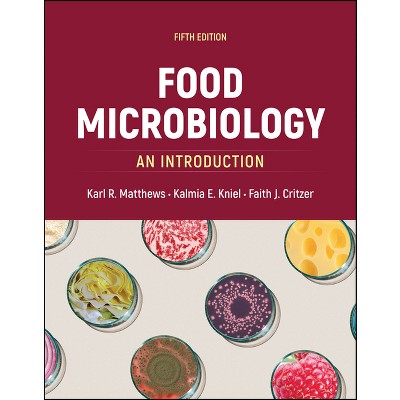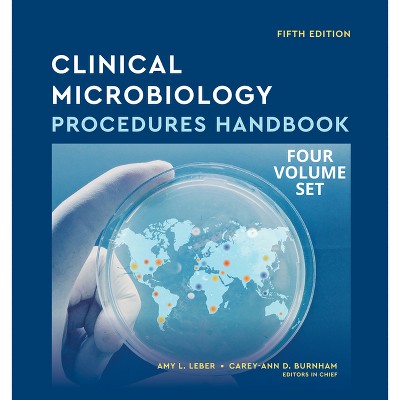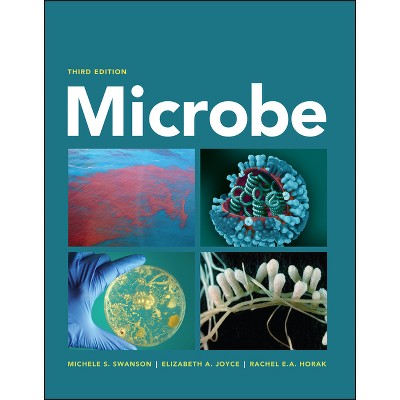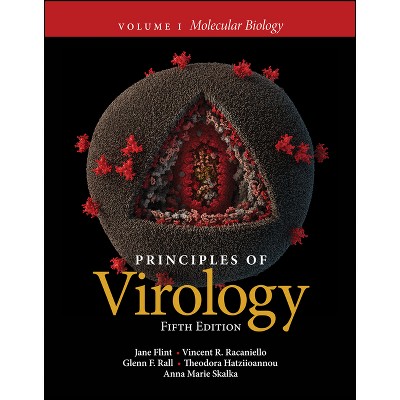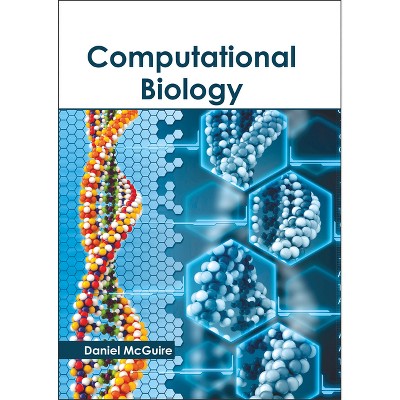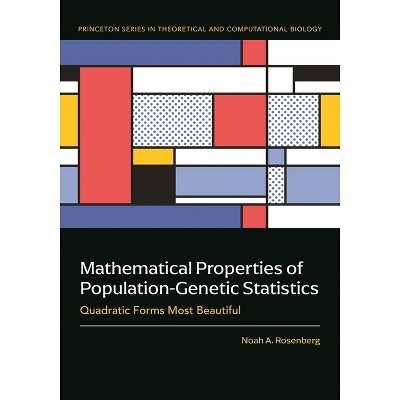Sponsored

Computational Biology - (ASM Books) by Scott T Kelley & Dennis Didulo (Paperback)
In Stock
Sponsored
About this item
Highlights
- This textbook is for anyone who needs to learn the basics of bioinformatics--the use of computational methods to better understand biological systems.
- About the Author: Scott T. Kelley is a professor of biology at San Diego State University.
- 210 Pages
- Science, Study & Teaching
- Series Name: ASM Books
Description
About the Book
An introduction to the world of bioinformatics. Massive increases in computing power and the ability to routinely sequence whole genomes of living organisms have begun to fundamentally alter our understanding of biology, medicine, and agriculture.Book Synopsis
This textbook is for anyone who needs to learn the basics of bioinformatics--the use of computational methods to better understand biological systems. Computational Biology covers the principles and applications of the computational methods used to study DNA, RNA, and proteins, including using biological databases such as NCBI and UniProt; performing BLAST, sequence alignments, and structural predictions; and creating phylogenetic trees. It includes a primer that can be used as a jumping off point for learning computer programming for bioinformatics.
This text can be used as a self-study guide, as a course focused on computational methods in biology/bioinformatics, or to supplement general courses that touch on topics included within the book. Computational Biology's robust interactive online components "gamify" the study of bioinformatics, allowing the reader to practice randomly generated problems on their own time to build confidence and skill and gain practical real-world experience. The online component also assures that the content being taught is up to date and accurately reflects the ever-changing landscape of bioinformatics web-based programs.
From the Back Cover
Computational Biology
First Edition
An introduction to the world of bioinformatics
Massive increases in computing power and the ability to routinely sequence whole genomes of living organisms have begun to fundamentally alter our understanding of biology, medicine, and agriculture. At the intersection of the growing information and genomics revolutions sits bioinformatics, which uses modern computational power to reveal patterns in biological data sets, especially DNA, RNA, and protein sequences.
Computational Biology: A Hypertextbook, by Scott Kelley and Dennis Didulo, provides a wonderful introduction for anyone who wants to learn the basics of bioinformatics. This book is more than a textbook because of the wealth of online ancillary materials and how the print and electronic components are integrated to form a complete educational resource. Aspects that make Computational Biology: A Hypertextbook a unique and valuable tool for teaching and learning bioinformatics include
Computational Biology: A Hypertextbook is written in an accessible voice, punctuated with humor, and designed to significantly increase computational competencies. Biology and computer science undergraduate and graduate students will thoroughly enjoy learning from this unique hypertextbook, as will anyone with an interest in exploring this burgeoning topic.
Review Quotes
Kelley and Didulo have weaponized bioinformatic education! As an undergraduate educator I am always looking for tools to help make the basic tenants of sequence data analysis understandable, and here it is! From standard BLAST to RNA structural alignments and probability analysis, this is a resource that every student of microbiome and molecular analysis should have. The balance between book and online material is well done, providing a framework to develop skills that a student can build upon. -Jack Gilbert, Faculty Director, The Microbiome Center; Professor, Department of Surgery, University of Chicago; Group Leader in Microbial Ecology, Argonne National Laboratory
About the Author
Scott T. Kelley is a professor of biology at San Diego State University. He received his doctoral degree from the University of Colorado and his bachelor's degree from Cornell University. His lab uses phylogenetic methods and culture-independent molecular tools to study environmental microbiology, and Kelley has published extensively on the human microbiome, built environment, and numerous natural environments.
Dennis Didulo is a data analytics and software engineer working at Becton, Dickinson and Company. He received his master's degree in information technology at De La Salle University and his second master's degree in bioinformatics at San Diego State University. He has development expertise in more than a dozen computer languages, as well as in database management, algorithm design, and systems engineering.
Shipping details
Return details
Trending Non-Fiction






